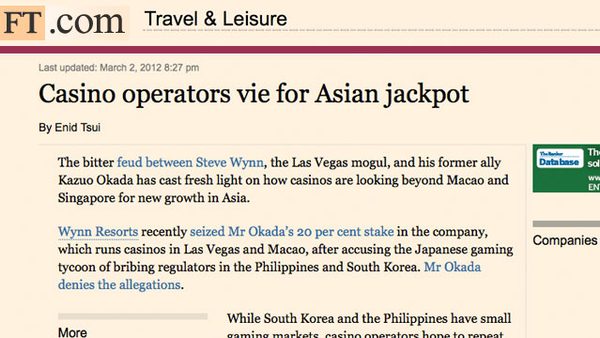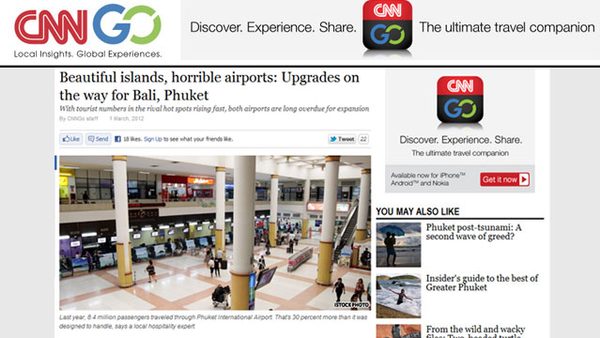SUMMARY
This is AI generated summarization, which may have errors. For context, always refer to the full article.
- US Banks Lobby, FED Loosens Up

The first in-depth account of the pre-crisis decisions of the Federal Reserve (Fed) showed that the gatekeeper of the US economy failed to ensure that the banking system was strong enough to withstand the looming external threats, including the 2011 European crisis.
Banking on the claims of the giant banks that the worst of the US crisis has passed, the Fed allowed 19 big US banks to pay $33 billion in dividends and stock buy-backs to shareholders and executives months before the US economy went into shock over the contagion effect of the European woes.
Apparently, some of the key decision makers at one of the most powerful but secretive economic institutions in the world are themselves previously connected to the banks they are regulating, thus warnings about the ability of the banks to withstand stresses and crises were set aside.
Weak banks in a fragile economy could result in another bailout, which means US taxpayers could be left holding the bag again.
A weak US economy and low purchasing power of the Americans would likely hit Philippine exports, a crucial contributor to our national economy, again.
Read the investigative report of ProPublica - Putin is Russia’s president again

The political drama in Russia continues. Strongman Vladimir Putin cried during a speech in an early victory party on Sunday, March 4 (March 5 in Manila) as he claimed victory in the recently concluded presidential election.
“We have won. Glory to Russia,” he told supporters in a rally. After framing his campaign as a vote for “stability,” Putin is likely to return to Kremlin after a 4-year stint as prime minister.
His critics will likely highlight electoral fraud as a means of shining a light on Putin’s fading popularity and what they say is his illegitimate claim to power.
Note that this is the first election that Russians, especially the young, are turning to social media to express their dissatisfaction – or satisfaction – about their leaders.
View the coverage of Aljazeera and Russia Today - The ‘Inside Facebook’ Story

Fortune magazine is featuring a cover story on Facebook for its March 19 issue to warn investors readying to gobble the social media’s stocks in an upcoming IPO.
Two magazine journalists who wrote the “Inside Facebook” article described how 2 divergent cultures – Mark Zuckerberg’s hacker credo and the COO Sheryl Sandberg’s corporate tendencies – reveal the possible dangers that the social media king faces ahead.
It also provides tidbits about the 8-year-old company’s dizzying rise, why it waited years to file for its IPO, how it recruits, and how the company protects its hacker culture.
Read a preview on Fortune’s site. or watch one of the authors describe their findings. - Peace is Bad Business

No surprise in this finding by Stockholm International Peace Research Institute: Global sales of arms and military services by the 100 largest defense contractors increased in 2010 to $411.1 billion. In a recently published annual report of the institute, it noted that total arms sales of the 100 largest arms manufacturers have increased 60% since 2002. During the recent waves of financial crises, the industry leaders were generally spared from the financial wrath that hit and caused many industries to suffer. According to SIPRI arms industry expert Susan Jackson, when sales did drop, it was due to “the withdrawal of foreign troops from Iraq and the subsequent expected decrease in related equipment sales.”
Read more from SIPRI and 247wallst.com - China Budgets Over USD 100-B for Military

China increased its military budget by 11.2% in 2012, pushing it above $100 billion for the first time.
This Asian neighbor has been increasing its defense budget every year and its announcement of its $106 billion military might is seen as part of response to Washington’s $740 billion-worth budget, which includes efforts to bolster presence in Asia and counter China’s dominance.
Beijing said it is developing an aircraft carrier, a stealth fighter jet, and missiles that can shoot down satellites.
Read more on BBC.co.uk. - Asian Jackpot For Casino Operators

The bitter feud between casino moguls Steve Wynn and Kazuo Okada that exposed freebies allegedly received by Filipino officials in Philippine Amusement and Gaming Board (Pagcor) has simply brought a fresh focus on how casino operators are looking in other parts of Asia for growth.
The Philippines may have a small gaming market, but casino operators hope to mirror their successes in Singapore and Macau, which has overtaken Las Vegas as the world’s gambling haven since 2006.
Okada’s Japan, as well as Taiwan and other neighbors remain “holy grails” as politicians cite social and moral grounds for opposing efforts to relax restrictions. Thus, these casino moguls are hoping to increase their pie by vying for less restricted markets like the Philippines, Vietnam and South Korea.
Read more on FT.com.
- Int’l Debut for ‘It’s More Fun In PH’

The tourism campaign strategy of the Philippines will be pitched at the world’s largest travel event – the annual International Turismo Bourse (ITB) in Berlin from March 7 to 11.
The 41-member Philippine delegation, led by Tourism Secretary Ramon Jimenez, is launching its “It’s More Fun in the Philippines!” campaign for the first time in an international stage where it will go against over 180 countries vying for the attention of institutional and travel wholesalers that are responsible for bulk of tourist arrivals in Asia.
While the Philippines’ low-budget experimental campaign is largely dependent on social media, these exhibits are crucial for the country to meet its target of 10 million tourist arrivals by 2016.
Read more from Rappler. - Philippines’ Richest Clash On Mining’s Future

The mining forum on Friday, March 2, will be remembered for the love-triangle-on-display among Regina Lopez (of the fabled Lopez clan behind giants ABS-CBN and First Philippine Holdings), Gerardo Brimo (of Nickel Asia and the industry chamber), and Manuel V. Pangilinan (of giants PLDT, Metro Pacific’s mega infrastructure projects, and Philex Mining).
Lopez and Brimo exchanged I-love-you’s, while Pangilinan accused Lopez of “lying” as almost 600 of the country’s well-heeled packed a hotel ballroom while thousands tuned in to livestreaming or participated on social media via Twitter’s #WhyMining.
The main impact of the forum, however, is on the Aquino government’s next moves on the mining industry. How will it balance the positions of both sides in its upcoming new mining policy?
Read more on Rappler here, here, here and here.
For the existing mining contracts in the Philippines, view this #WhyMining map.
How does mining affect you? Are you pro or against mining? Engage, discuss & take a stand! Visit Rappler’s #WhyMining microsite for the latest stories on issues affecting the mining sector. Join the conversation by emailing whymining@rappler.com your views on the issue.
For other views on mining, read:
Yes to Mining No to Mining More on #WhyMining:
- Shaping the future of mining
- EO: No new mining contracts
- The Mining EO: A mixed bag
- Mining E.O. not perfect, but very good
- CONVERSATIONS: What are your thoughts on the mining EO? #WhyMining
- Mining E.O. pits gov’t vs local execs
- Correcting lies and disinformation
- Stand for the environment
- How can mining work for Philippines?
- Mining is a social justice issue
- REPLAY: #WHYMINING
- New Bali Airport to Accommodate 20-M Tourists

The Philippines’ Ninoy Aquino International Airport (NAIA) and Indonesia’s airport facilities in Bali were both featured on CNN’s 10 Most Hated Airports.
But while NAIA Terminal-1 is getting an over US$1 billion facelift while awaiting the undated transfer of the main gateway to Clark in Pampanga, Bali is taking the CNN shame more seriously and urgently. The Indonesian government will not only upgrade the Bali airport but has also slated the construction of a brand new international terminal facility so it could accommodate 20 million passengers by 2013.
Read more from CNNgo.com. - BP Settles USD 7.8-B With Some Victims of 2010 Disaster

Oil giant BP and the lawyers of over 100,000 victims of the 2010 Gulf of Mexico oil spill have reached a $7.8 billion out-of-court settlement for the damages the incident has caused.
This deal was sealed even before the trial was supposed to begin on Monday, March 5. It includes a $2.3 billion payment to people who have fallen sick and $105 million for healthcare in the coastal region.
It does not include other cases filed against the oil company seeking civil penalties and damages that could run into the tens of billions of dollars.
These settlement deals are usually templates for the handling of other oil spill incidents. The Philippines has had experiences of oil spill disasters that were mostly due to bad weather or weak regulation.
Read more from the special coverage of FT.com
Add a comment
How does this make you feel?
There are no comments yet. Add your comment to start the conversation.